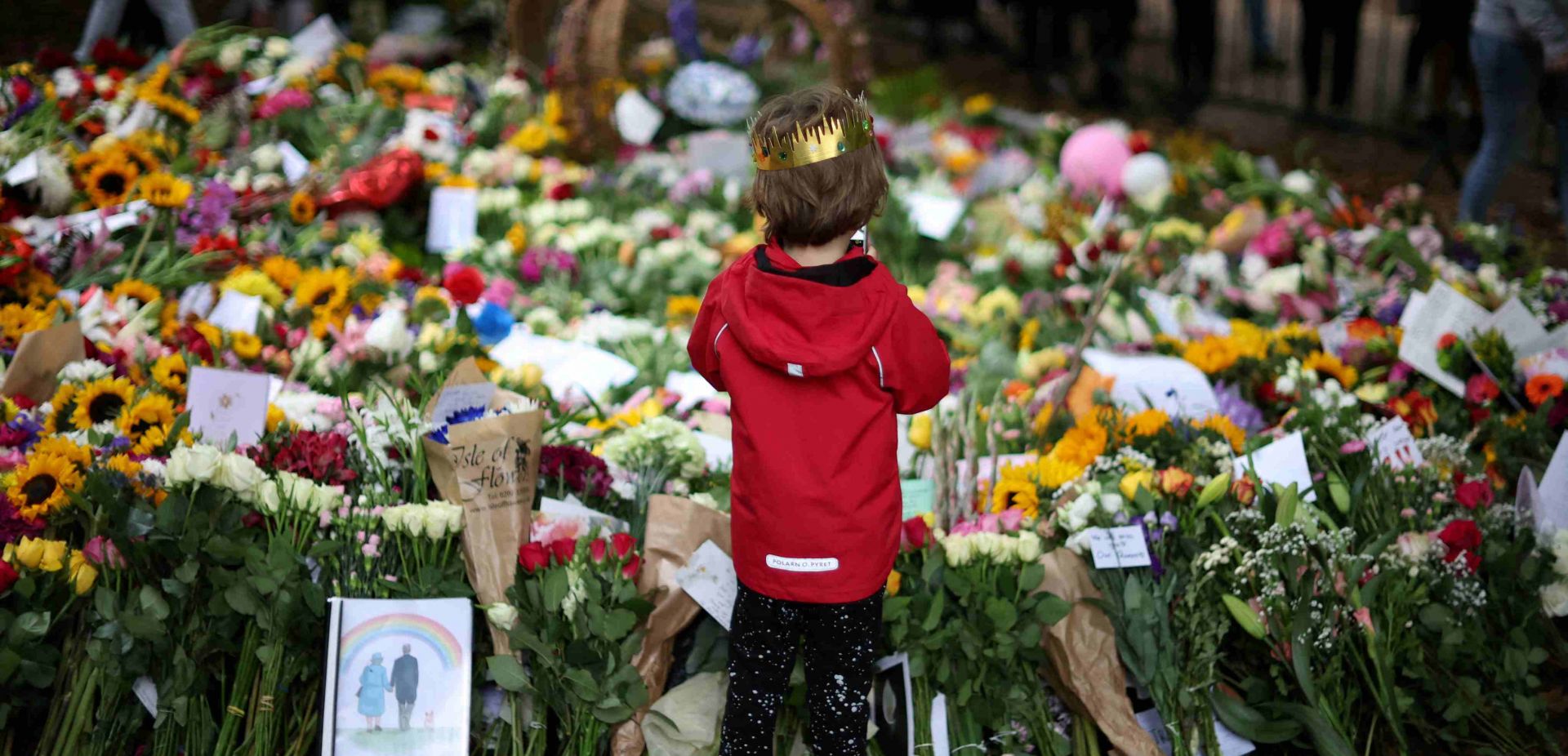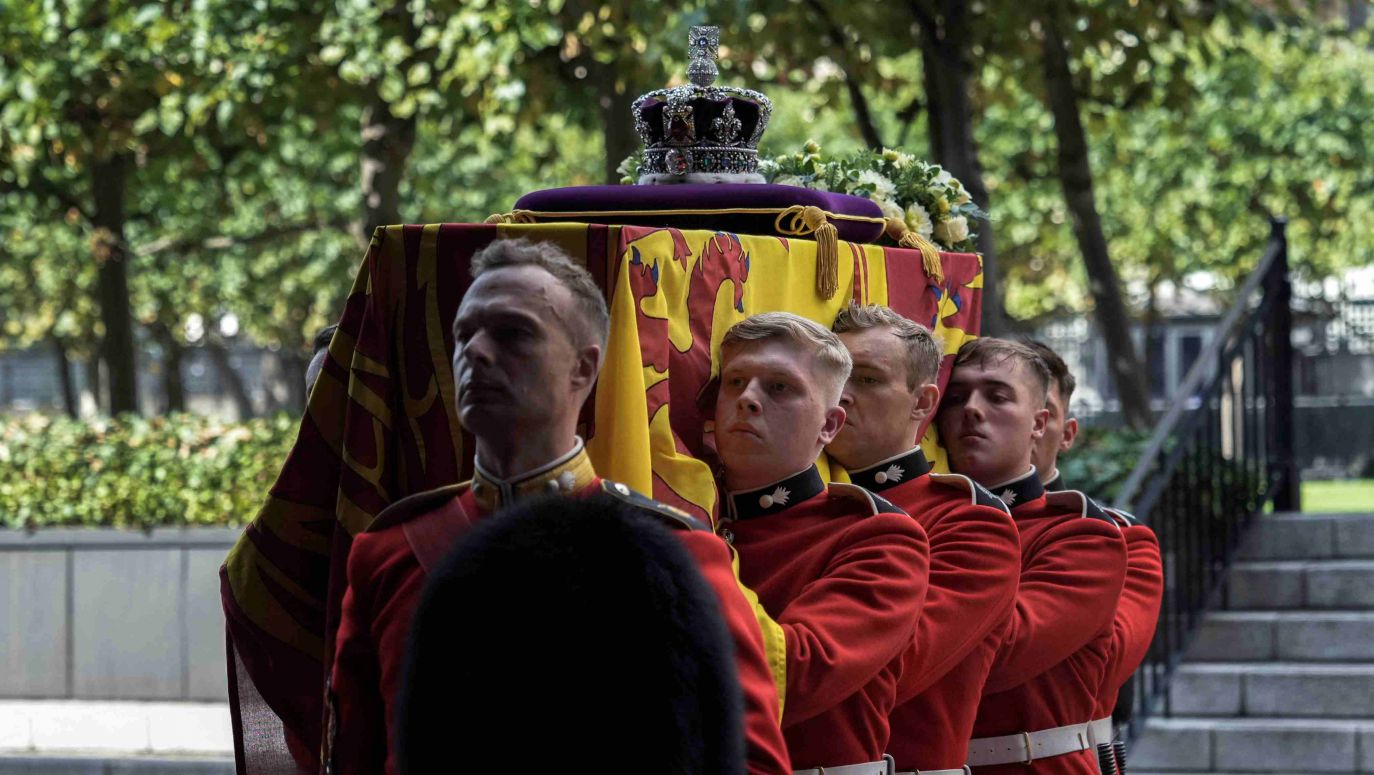The Queen Elizabeth’s funeral will be the most impressive event of this kind in history – that’s what claim the British media and it’s unlikely that they are wrong. Funeral rites will be held on Monday, September 19 in London and nearby Windsor where the Monarch is about to rest in St George’s Chapel, next to her parents and her late husband Prince Philip who died last year. Thanks to broadcasting the Queen can be accompanied by viewers form all around the world. And most probably these would hundreds of millions.
The pope John Paul II’s funeral, when the world bade farewell its spiritual father, comes irresistibly to mind. Those rites also gathered millions of people before TV, and on St Peter’s Square – leader from the entire world, not only the Christian one; the UK was then represented by the heir to the throne, prince Charles, today – king Charles III.
The Queen’s funeral will too be attended by heads of state, leaders of international institutions and members of royal families – so, in most cases close and distant relatives.
 SIGN UP TO OUR PAGE
SIGN UP TO OUR PAGE

People’s grief and mourning have a different dimension. The British bid farewell T H E I R Queen, somebody who is close and beloved. Just as do inhabitants of Commonwealth states, particularly of those which remain in the sphere of Anglo-Saxon culture – i.e. Canada, Australia, New Zeeland. The new Australian government, led by a pro-republican prime minister even mustered to the gesture of holding back the plans to establish a republic.
Exceptional monarchy
Since the very day of Queen’s death media pay attention which surely they wouldn’t pay to anybody. In countless articles, TV and radio programs they recall the life of Elizabeth II, underlining the good side and justifying the bad side. They bring up her best features, especially the understanding of royalty as a service for the country – and these are not courtesy remarks, dictated by the principle known as “de mortuis nihil nisi bene” (of the late speak only well). Her last journey staring from the castle of Balmoral in Scotland, where she passed away, through Edinburgh to London, Westminster Palace and the parliament where her coffin was exposed to the public and where her subjects can pay a tribute to her. That it happens so in Great Britain is obvious. But why elsewhere?
Meanwhile throughout the whole world the interest of Queen’ death is great. It shows how the British monarchy differs from against the background of other ones, in Europe and outside, even if it has undergone the same metamorphosis. The British monarch, like other kings, “reigns but not rules”, but, in contrast to others, he is in the foreground. Of course not in the political sense.

 SIGN UP TO OUR PAGE
SIGN UP TO OUR PAGE
 People’s grief and mourning have a different dimension. The British bid farewell T H E I R Queen, somebody who is close and beloved. Just as do inhabitants of Commonwealth states, particularly of those which remain in the sphere of Anglo-Saxon culture – i.e. Canada, Australia, New Zeeland. The new Australian government, led by a pro-republican prime minister even mustered to the gesture of holding back the plans to establish a republic.
People’s grief and mourning have a different dimension. The British bid farewell T H E I R Queen, somebody who is close and beloved. Just as do inhabitants of Commonwealth states, particularly of those which remain in the sphere of Anglo-Saxon culture – i.e. Canada, Australia, New Zeeland. The new Australian government, led by a pro-republican prime minister even mustered to the gesture of holding back the plans to establish a republic.






